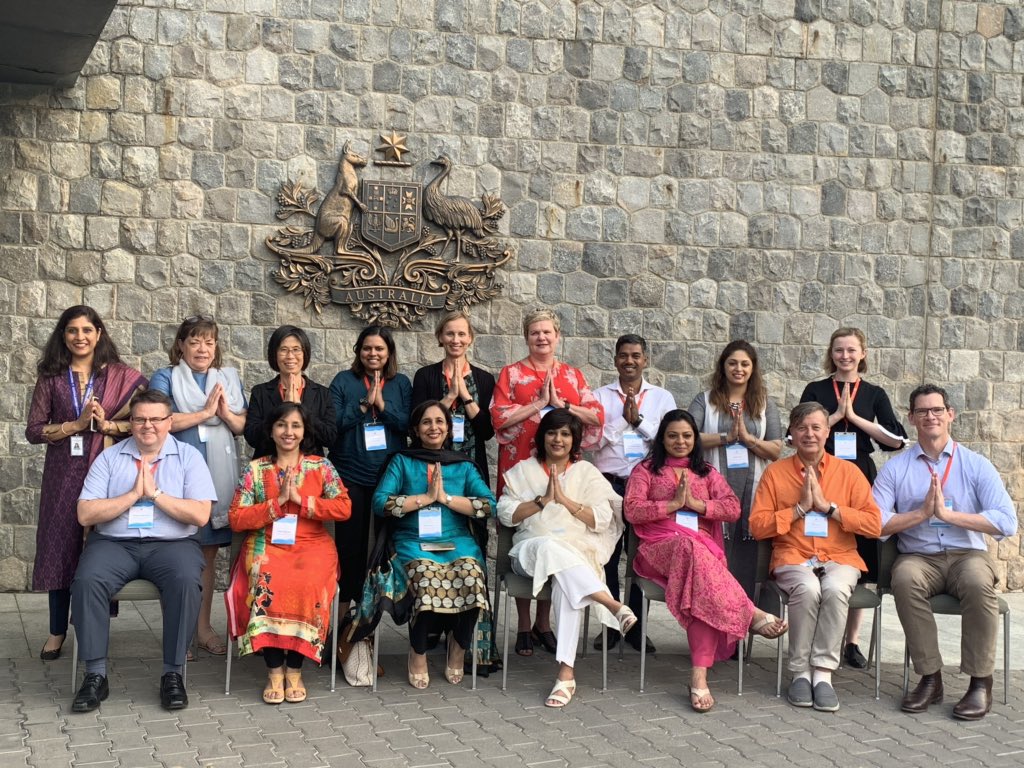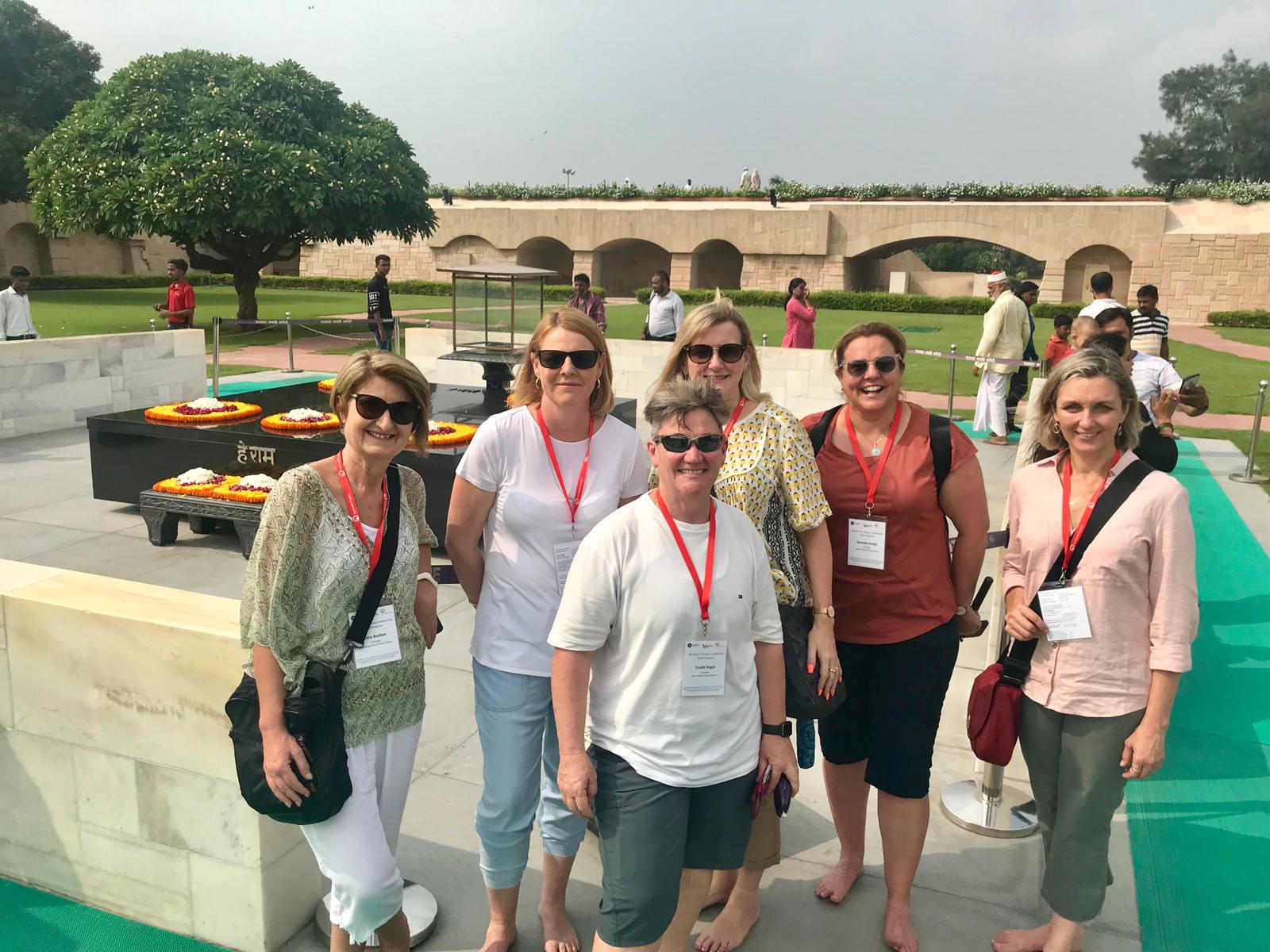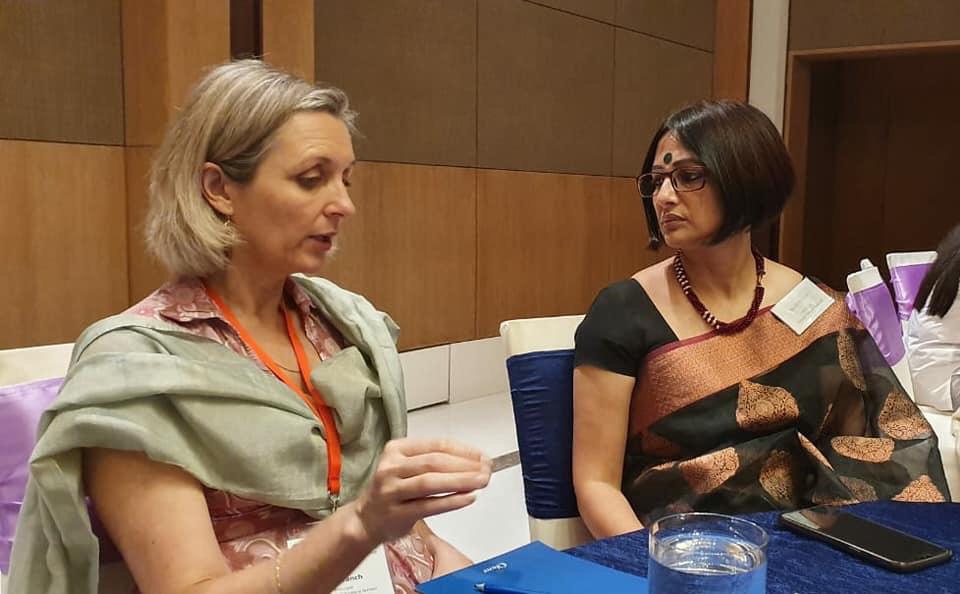by
User Not Found
| Aug 30, 2021
Dr Michiko Weinmann, Senior Lecturer Languages Education and Director CTaLL (Centre for Teaching and Learning Languages) at Deakin University, Dr Rod Neilsen, Senior Lecturer in Education TESOL (Teaching English to Speakers of Other Languages) at Deakin University and Jennifer Star, International Education Partnerships Manager at Asia Education Foundation

Before the COVID-19 pandemic forced schools and universities to suspend travel, international study abroad and exchange programs were commonly offered as part of co-curricular programs across a variety of education sectors and disciplines.
What made these programs so attractive was the opportunity to immerse oneself in a different language, culture, school and work environment. To get out of one’s comfort zone, and to develop new friendships and contacts overseas.
One common benefit often referred to is experiencing different countries and cultures helps develop a ‘global mindset’. This key characteristic of 21st century citizens is mentioned in numerous education documents including the OECD PISA Global Competence Framework and the Intercultural Understanding General Capability of the Australian Curriculum.
Global competence has been defined as requiring a combination of knowledge, skills, attitudes and values which can be applied to global issues or intercultural situations. This definition suggests an ability to think beyond geographical, cultural and language boundaries and to challenge one’s beliefs and perspectives as the dominant way of viewing the world. However, ‘border crossing’ is a process that involves more than a ‘translation’ into a new environment.
Research has shown that despite their good intentions to foster intercultural dialogue, overseas programs can actually construct, rather than overcome, cultural assumptions about ‘difference’. Studies have illustrated that promoting critical self-reflection is key in supporting program participants to ‘make sense’ of their intercultural encounters, not just according to their own, but also the host country’s customs, values and ways of life.
Global mobility and the global mindset
Drawing on our experiences as program leaders of overseas teaching practicums for Australian teacher education students in Chile and India, we examine the transformative ‘border crossing’ encounters that study abroad programs can generate. We also share examples of student experiences that may have inadvertently reinforced cultural stereotypes about difference.
In both Chile and India programs, pre-departure preparation sessions and orientation after arrival included cross -cultural awareness seminars, an introduction to the education systems of Chile and India and, for the Chile program, also basic Spanish language workshops. However, as our episodes below illustrate, the reality of lived experience and classroom practice in the host country highlighted that ‘translating’ knowledge about a new culture and education context into reciprocal intercultural and interpersonal interactions is a complex two-way process between the ‘outgoing’ participants and the hosts in-country.
Upon ‘crossing the border’ to Chile, a natural first step for many was to compare aspects of culture that seemed closely related. Some described Santiago as similar to Melbourne, at least as regards its climate and cosmopolitanism. However, social behaviour was soon noticed as different, as ‘Leah’ put it:
everyone’s really nice, and sometimes it’s maybe a little bit too over- the-top nice, compared to what we’re used to….it’s been great to just observe something in a different culture and how it’s vastly different (Leah)
This initial enthusiasm for difference was mirrored when ‘crossing the border’ to India. ‘Kayla’ describes her first impressions of the Indian city of Bengaluru as vibrant, dynamic, and colourful, filled with beautiful people who were really friendly and welcoming. She goes on to say It’s just so different to Sydney and […] most of the cities I’ve been to in Europe.

Image: The global COVID-19 pandemic has had an unprecedented impact on international education, including study abroad and research programs. Australian teachers arrive in India as part of the Women in School Leadership Program.
Gradually, in both the Indian and Chilean contexts, an us-and-them binary began to form, and perceptions of similarity and common ground gave way to the noticing of difference, especially during school placements. Some perceived local classrooms as lacking control or having restricted learning spaces:
In Australia we’re very fortunate with our funding and the students have great resources, and the comfort of the learning space is pretty fantastic. (Maddy)
Similarly, Kayla describes the Indian classroom as dark and dingy with blank walls and a teacher who just sits there, in direct comparison to the Australian classroom which has colourful posters and student work on the walls and an active co-construction of knowledge between teachers and students.
Using Australia as the default reference point for their observations caused many program participants to make several assumptions about classroom dynamics and ways of learning. In Chile, this was particularly noticeable regarding how they perceived classroom talk in a language they had little knowledge of.
The classrooms are quite noisy here, and [the students] talk so much, I feel they could benefit so much from incorporating maybe some collaborative learning in with that talk. (Leah)
As study abroad program leaders who are proficient in Spanish, from observing practicum classes we were able to confirm that the Chilean students were mostly engaged in task-focused talk. Thus, assumptions were made without awareness that Latin American cultural norms around classroom talk may be set to different ways of communication and interaction.
Reflecting on classroom practice in India, Kayla expressed frustration at the teacher’s reliance on the textbook as a classroom resource, with little thought to the wider context of the classroom and the needs of the students that filled it:
The expected practice here [India] is to teach from the textbook, to have kids answer those questions, if they can answer those questions, they’re fine for the exams and that’s it. That’s their education done. In Australia your textbook is an added extra [...] in my perception, a teacher who teaches from the textbook is not a very good teacher.
Such ways of coping with disruptions to ‘normal’ experiences of working led the student teachers to compare difference, often unequally, with an unspoken assumption that ‘our ways are ‘better’. Engaging with and reflecting on challenging incidents may disrupt such first-world views and, through interaction with members of the host community, can help teachers develop a more nuanced professional identity (Santoro, 2014).

Image: Australian and Indian teachers take part in an open dialogue as part of their international study program.
Intercultural learning opportunities in such programs can indeed shift participants’ perspectives of the host and their home country. However, multicultural encounters and experiences are complex, and study abroad programs, often quite short, are limited in their capacity to create lasting transformation (Castro 2010). Especially in programs in which the destination country has a lower socioeconomic standard than Australia, participants tended to have a limited awareness of how their world views had been shaped through a sense of privilege. This limited their ability to see things from another perspective, which became increasingly apparent as a blind spot in our programs.
Similar observations have been articulated in recent seminar conversations that we had with teachers and principals who had participated in the BRIDGE School Partnerships Program or overseas leadership programs. In particular, school leaders pointed out that stronger engagement with the host’s approach to developing global citizenship programs and the beliefs and principles that underpinned them could contribute to seeing our overseas programs and their envisaged outcomes in a new light.
Rethinking the traditional notion of ‘perspective’
The notion of ‘perspective’ needs further unpacking and scrutiny, and in the pause on travel enforced by the pandemic, education institutions might have an opportunity to address this by rethinking the goals of international education and global competence.
Study abroad experiences can create a space for self-reflection through encounters with the unfamiliar. The discomfort which often results can be a dynamic pedagogical tool, a ‘pedagogy of discomfort’ that facilitates a transition from reflection to action (Boler and Zembylas 2003). Such insights may fade after the return home, and therein lies the challenge for study abroad programs: to encourage sustained reflection on the complexities engaged with in the host country.
As the ongoing global pandemic continues to reveal new insights about pre-existing inequities in education, this has started to raise new questions about the potential of virtual mobility programs. While ‘Zoom fatigue’ and the sense of geographical distance have been identified as challenges during virtual programs, the use of digital technologies also opens up new opportunities: They can contribute to supporting diversity and inclusion, for example of students living in rural or remote areas, by ‘bringing the world to them’; another benefit is the broader affordability of virtual intercultural experiences ‘at home’. The flexibility of asynchronous interactions and activities could enable the participation of students for whom taking an extended period of time out of their busy schedules to partake in an in-country program overseas may not be possible.
As literatures of education and pedagogy have pointed out, when the ‘normal’ is substituted by the unusual and novel, moments in time are frozen where new perceptions may emerge. The current times could provide the momentum to reimagine what global study abroad programs could look like now and in the future.